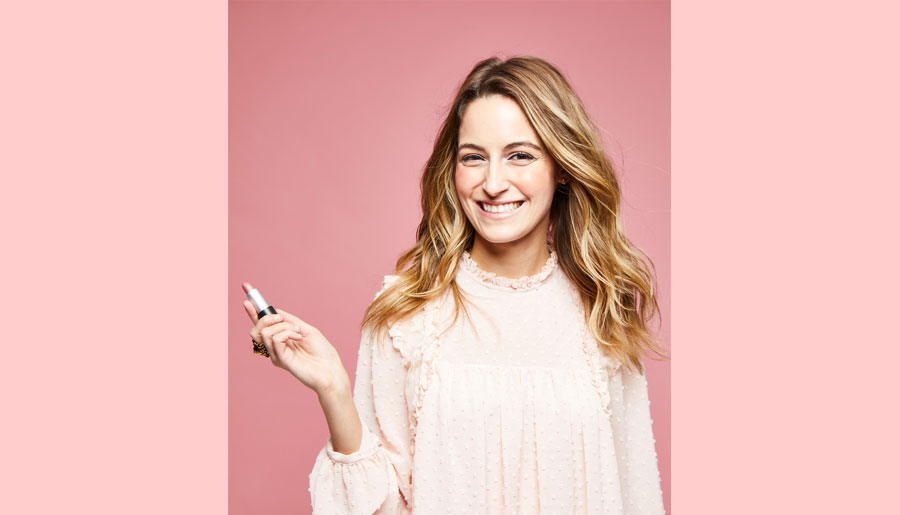Chances are your approach to sun protection has changed in recent years. Thanks to organizations like The Skin Cancer Foundation and our allies in the media who help spread our message, public awareness about skin cancer is at an all-time high. I was struck by this shift as I read through magazines that once promoted tanning oils and are now filling their pages with boundless sunscreen options and cautioning against skin cancer.
I spoke with a veteran beauty journalist who has served the public through her career by reporting on the effects of this disease. April Franzino, beauty director for magazine brands Good Housekeeping, Woman’s Day and Prevention, shared her insights on how far we’ve come and how sun-protective behaviors continue to evolve.
Reinventing the Wheel
Over the past four years, Franzino has logged hundreds of hours dissecting the beauty landscape. “Beauty is a mix between science and art in a lot of ways,” she says. In addition to product testing, Franzino found herself enthralled with the attention to detail involved in how a product is developed and packaged.
Navigating the world of products and procedures, Franzino has noticed audiences are more intuitive than ever before. “People are reading a lot more now; they’re more interested in the why and how behind what they use,” she says.
Shoppers have shown to be more proactive in managing their well-being. This has held true for skin-care lovers as they focus on the bigger picture versus one-off needs. “For a long time, skin care was approached by fixing a specific problem, whereas now it’s about looking fresh and vibrant all over,” says Franzino. For instance, she says: the rise of tinted moisturizers that also contain SPF; they can be your all-in-one hero product with multiple benefits.
Additionally, brands have been making advances with popular formulations that already exist. “The next wave of gold standard ingredients is starting to hit shelves, with an emphasis on making the use of products pleasant,” says Franzino. New forms of vitamin C and retinol, for example, have been reworked to be less harsh on the skin. This attention to tolerability, efficacy and delivery has commanded more user-friendly experiences that fit into any lifestyle.
Beauty Faces the Beast: Skin Cancer
Sunscreen and sun protection have been more of a focus in beauty journalism in recent years. “I don’t think skin cancer and sun protection were on anyone’s radar in the beauty world until about 10 to 15 years ago,” says Franzino. We know that skin cancer is the most common cancer, but Franzino was shocked when she first learned just how serious it can be. “I think many people take it for granted and don’t realize its potential to be deadly.”
While reporting on sunscreen’s benefits, Franzino points out beauty editors still come up against some resistance. “The perception has been that sunscreen is not appealing to use,” explains Franzino. Luckily, formulas have become more advanced, with added goodies like moisturizing properties and antioxidants that provide a sense of reward while also addressing specific facial skin-care concerns.
The antiaging effects of sun protection products — regular use can help ward off dark spots and fine lines — should be a strong motivator. “Not everyone gets skin cancer, thankfully, but almost everyone will experience skin aging and sun damage, so it’s a problem we want to tackle right away,” explains Franzino. She wants to help her readers gain from her experience, like this helpful tip on learning to incorporate sunscreen into makeup application: “I’ll apply sunscreen, then walk away to get dressed or make coffee, giving it some time to settle in, then go back to put on foundation,” says Franzino. Creating a routine helps make sun protection a daily habit.
Back to the Basics
Aside from preventing skin cancer, sunscreen can work wonders for the skin. “The most important thing you can do for your skin is to protect it every day,” reiterates Franzino. “There’s no point in using any other skincare treatments without it.” You can put on all the masks and serums you want, but without sun protection, your skin will be in constant defense mode and won’t be able to repair damage with other ingredients.
Franzino fields tons of questions from readers about sun damage and aging-related concerns and suggests it’s best to keep it simple with her top tips below:
- Be consistent. “Many people use products once a week or whenever they have a problem,” says Franzino. “You can’t expect to have long-term beautiful skin if you’re not using your skin-care products regularly.”
- Hydrate. “Don’t underestimate moisturizing,” says Franzino. “Everyone needs to moisturize, not just those with dry skin. Hydrating the skin can significantly reduce the look of wrinkles and dullness when used regularly.”
- Wear sunscreen daily. Period.
- All-around protection. Sunscreen is crucial but it alone is not enough. “I try to stay in the shade as much as possible and wear a wide-brim hat whenever I’m going to be in the sun for an extended period of time.”





